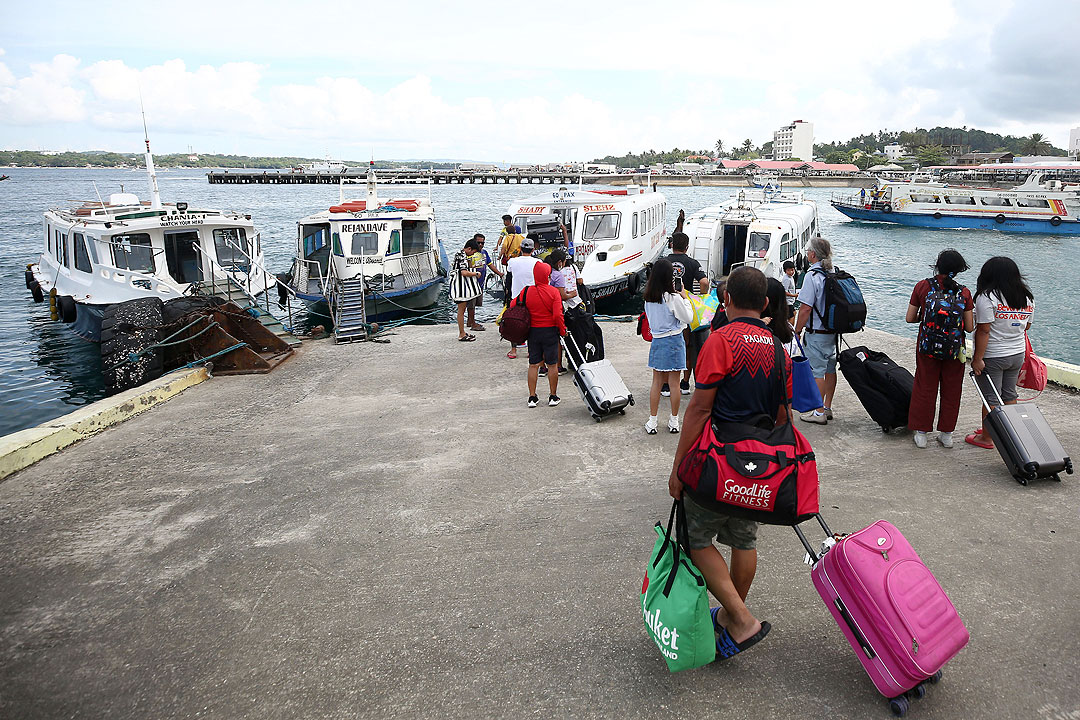




January Economic Update: Growth slows, prices rise
 DOWNLOAD
DOWNLOAD

Inflation Update: Up, up, and away?
 DOWNLOAD
DOWNLOAD

Quarterly Economic Growth Release: Growth takes on a slower pace
 DOWNLOAD
DOWNLOAD


Tourism’s contribution to GDP climbs to 6.2% in 2022

The tourism industry’s contribution to Philippine economic output rose in 2022, driven by the continued easing of travel restrictions, data released on Thursday showed.
Tourism’s direct gross value added (TDGVA) accounted for 6.2% of gross domestic product (GDP) in 2022, higher than the 5.2% share in 2021, preliminary data from the Philippine Statistics Authority (PSA) showed.
TDGVA measures the tourism-related value created by various industries. It is based on the results of the Philippine Tourism Satellite Accounts compiled by the PSA from the Department of Tourism.
The combined economic contribution of tourism activities was valued at PHP 1.38 trillion last year, up by 36.9% from the PHP 1 trillion seen in 2021.
Last year’s TDGVA value was the highest since the PHP 2.51 trillion recorded in 2019 or before the coronavirus pandemic.
Gross value added from accommodation services for visitors grew by 193.2% to PHP 132.06 billion, followed by transport services, up by 163.3% to PHP 168.96 billion, and shopping, which rose by 138.2% to PHP 305.95 billion.
Domestic tourism expenditures, which include spending of resident visitors within the country on a domestic trip or as part of an international trip, amounted to PHP 1.5 trillion last year, 92.3% more than PHP 782.57 billion in 2021. Domestic tourism expenditures were equivalent to 9% of household spending in 2022, according to the PSA.
Meanwhile, tourism expenditures by nonresidents amounted to PHP 368.67 billion in 2022, up by 1,234.2% from PHP 27.63 billion in 2021.
The share of inbound tourism expenditure in the country’s exports was at 5.9% in 2022 versus the 0.6% share in 2021.
Employment in the tourism industries was estimated at 5.35 million in 2022, or 11.4% of total employment. This was higher than the 4.9 million employed in the sector in 2021, or 11.1% of the working population.
On an absolute basis, tourism employment was highest since the 5.71 million in 2019. Relative to the total working population, this was highest since the 11.9% in 2020.
John Paolo R. Rivera, executive director officer-in-charge at the Asian Institute of Management’s Dr. Andrew L. Tan Center for Tourism, attributed the increase in tourism’s contribution to economic output to the reopening of borders and relaxed travel policies.
“This is expected as COVID-19 (coronavirus disease 2019) has been declared not a global health emergency anymore. This is also driven by revenge travel given the reopening of borders and relaxed travel policies,” Mr. Rivera said in an e-mail.
He added that travel was facilitated by the reopening of destinations and improvement in tourism products and services amid learnings from the pandemic.
“The increase can be further sustained if tourism destinations in the Philippines will have the necessary and sufficient soft and hard infrastructure that will make travel convenient, safe, and secure,” Mr. Rivera said.
“Tourism is expected to return to pre-pandemic levels at the rate tourism activities are going,” he added.
ING Bank N.V. Manila Senior Economist Nicholas Antonio T. Mapa also attributed the increase in the tourism sector’s contribution to GDP last year to the easing of travel restrictions.
“We can expect this trend to continue as foreign tourists return, however, gains may be capped as Filipinos now have the opportunity to travel abroad for leisure as well,” Mr. Mapa said in an e-mail. — Lourdes O. Pilar
This article originally appeared on bworldonline.com





 By BusinessWorld
By BusinessWorld
